Russia and US to hold urgent talks to ensure they do not end up in 'conflict' in Syria
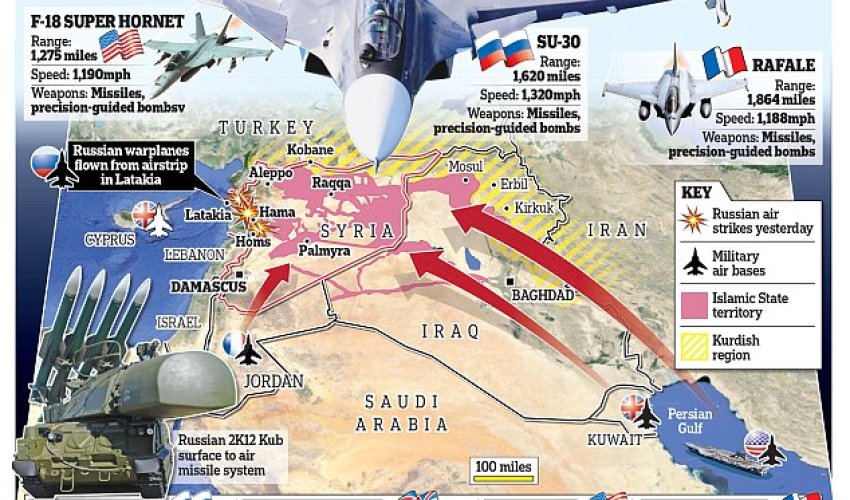
Russia and the U.S. have agreed to hold urgent military talks to ensure they do not end up 'in conflict' after Vladimir Putin launched airstrikes on Syria.
More than 20 Russian fighter jets launched an attack on three provinces in Syria yesterday, after the U.S. was given just one hours' notice to remove its planes and officials from the area.
The move increased tensions between the two countries, after concerns were raised that the airstrikes were only targeting anti-government rebels, many of whom are backed by the U.S.-led coalition, instead of ISIS-held areas.
Syrian opposition chief Khaled Khoja said 36 civilians had been killed in the attacks, which also apparently targeted a CIA-vetted Syrian rebel group that was receiving U.S. missiles.
Last night, U.S. Secretary of State John Kerry held a strained press conference alongside Russia's Foreign Minister Sergey Lavrov, with the pair confirming urgent 'de-confliction' talks will be held.
They said each country's military will hold talks 'as soon as possible' to ensure their forces do not clash in Syria.
Appearing together on the sidelines of the UN General Assembly in New York, they said they had drawn up proposals to relaunch a Syrian political peace process.
'We agreed on the imperative of as soon as possible - perhaps even as soon as tomorrow, but as soon as possible - having a military to military de-confliction discussion,' Kerry said.
He added that the two countries would work together to come to a solution regarding Syria. But he also added: 'It's one thing to be targeting ISlL. We are concerned if that is not what is happening.'
The hastily-arranged press conference came after U.S. Defence Secretary Ash Carter accused Russia of 'pouring gasoline on the fire' as the intervention in the Middle East appeared to target moderate rebel positions in support of dictator President Bashar al-Assad.
Both Foreign Ministers last night claimed legitimacy for their country's actions, but differed over the role of Assad.
Afterwards, in a tense address to the press after the meeting, both sides insisted the meeting had been 'constructive', but did not answer any questions from reporters.
Earlier, senior U.S. officials expressed alarm after Russian warplanes began their first military engagement outside the former Soviet Union since the occupation of Afghanistan in 1979.
The Americans accused Russia of striking moderate rebel factions fighting Bashar al-Assad's Syrian regime under cover of their claimed assault on the Islamic State group.
Russian officials responded by claiming that out of the 20 airstrikes, eight ISIS targets had been hit.
The ministry said Russian jets had destroyed an Islamic State command post and an operations centre in a mountainous area. The strikes did not hit civilian infrastructure or areas nearby.
However, activists, locals and rebels did not indicate that ISIS was a group being targeted in the airstrikes and instead said the areas blitzed by Moscow were controlled by an array of rebel groups - including those operating under the banner of the Free Syrian Army.
One Western-backed Syrian rebel group confirmed that at least one of its leading officers had been killed in the airstrikes in the central Homs province.
The group said that Iyad al-Deek - an officer in the Syrian army who defected soon after the Syrian revolution turned into a war in 2011 - died in an airstrike in the rural north of Homs.
If claims that Russia is killing anti-government rebels are true, it raises fears that the West must support Assad or risk becoming locked in a battle with Moscow.
Putin's involvement – which came hours after Moscow's parliament rubberstamped the order – also raised fears that flying over Syria could become 'nasty and highly dangerous' for coalition jets.
Along with 28 fighter jets, Putin is also believed to have deployed a surface-to-air missile system in Syria – which could be used to shoot down British and coalition planes.
He has also sent 14 helicopters, seven tanks and a number of drones to the country.
The RAF is currently conducting aerial operations in the region, using aging Tornado aircraft, Reaper drones and intelligence-gathering jets.
(dailymail.co.uk)
www.ann.az
Similar news
Similar news
Latest news 
More news 

























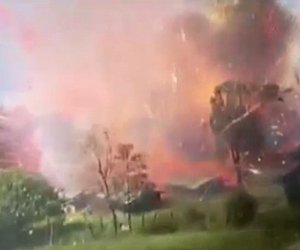

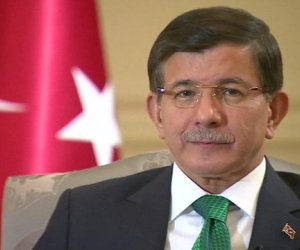
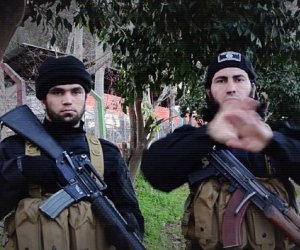

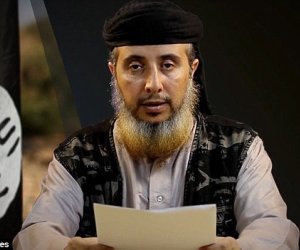
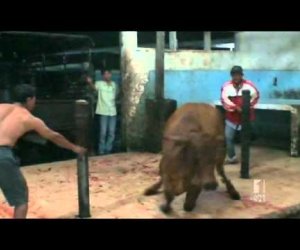



 Photo
Photo 



 Video
Video 

